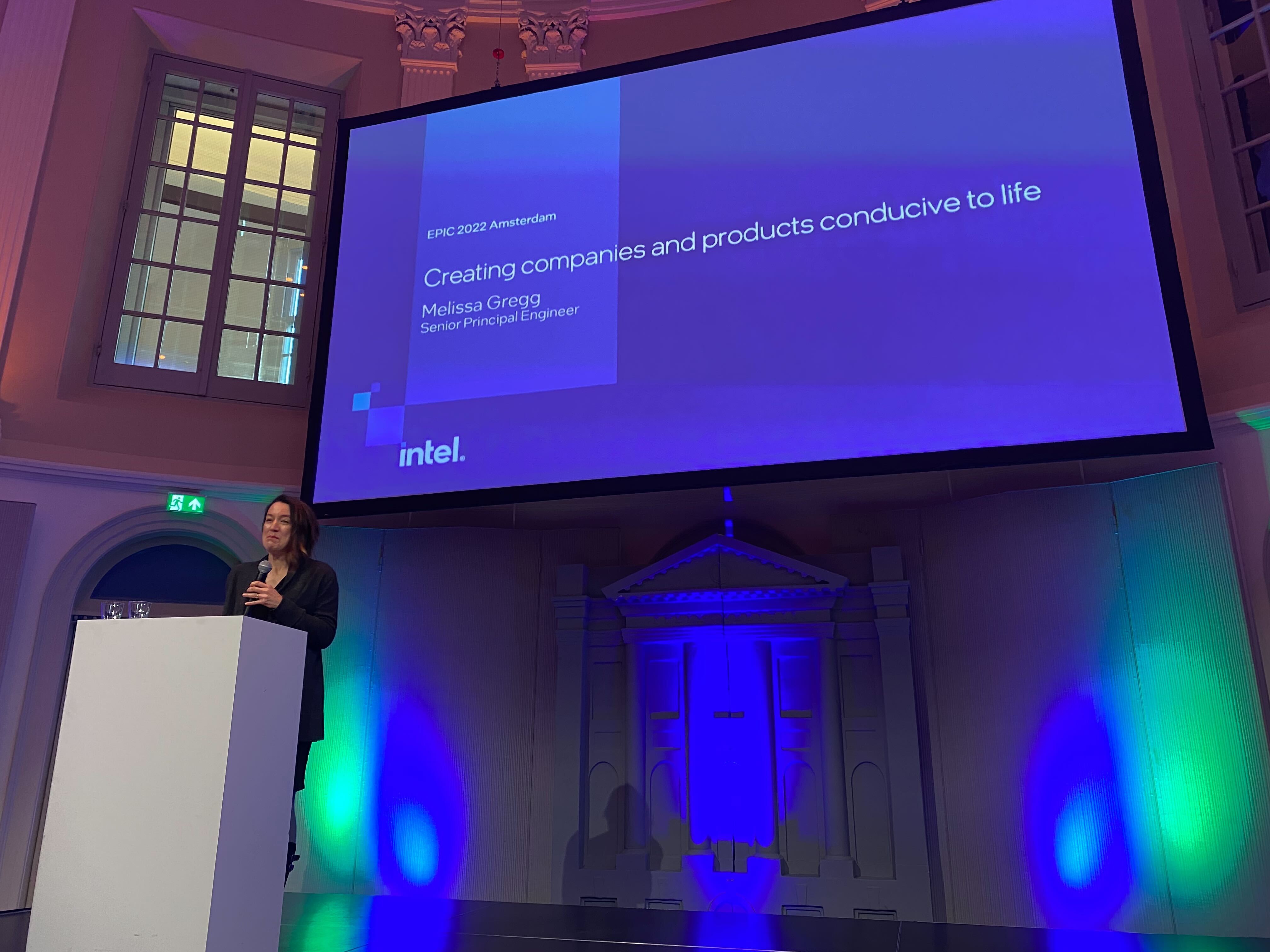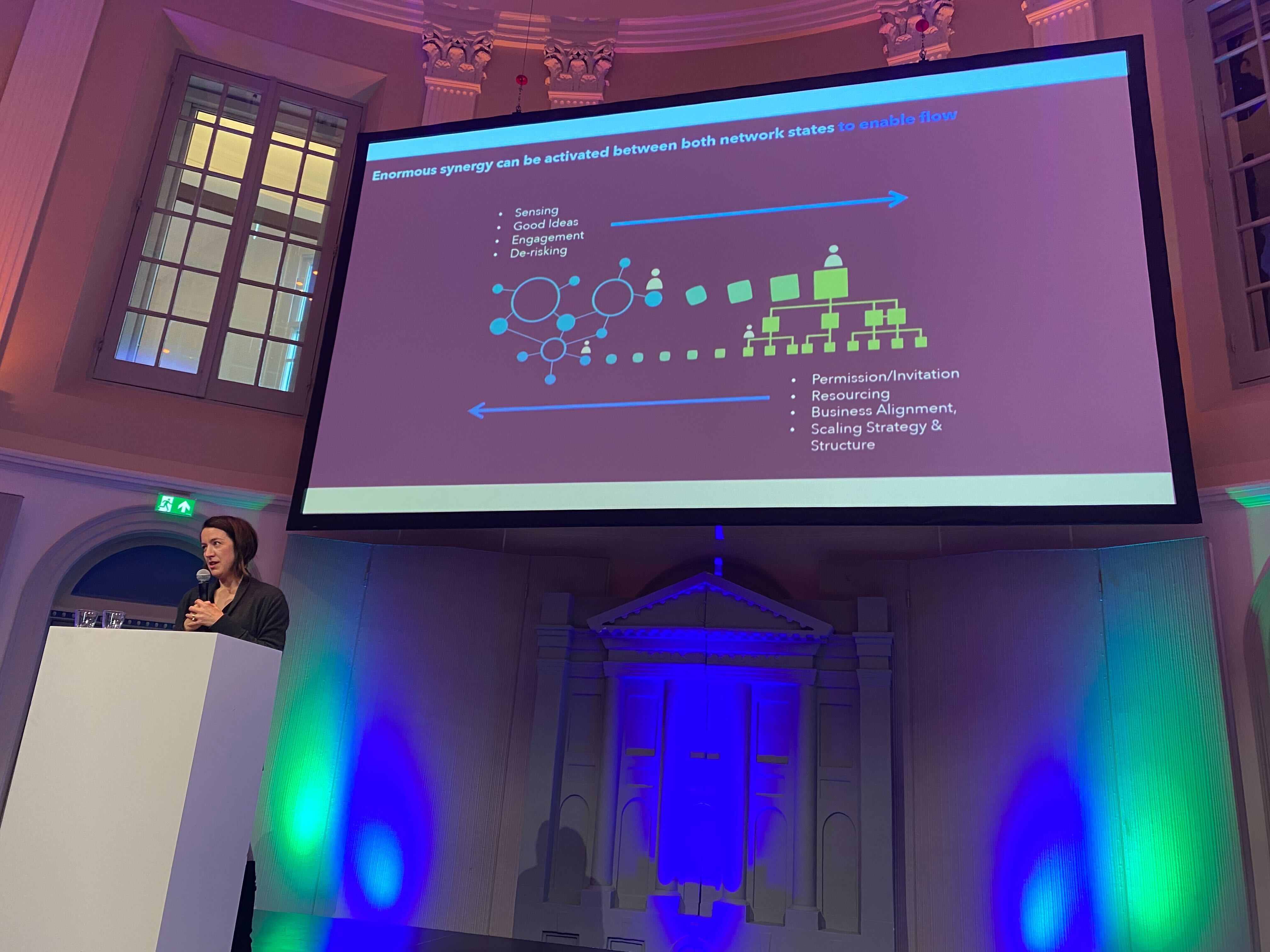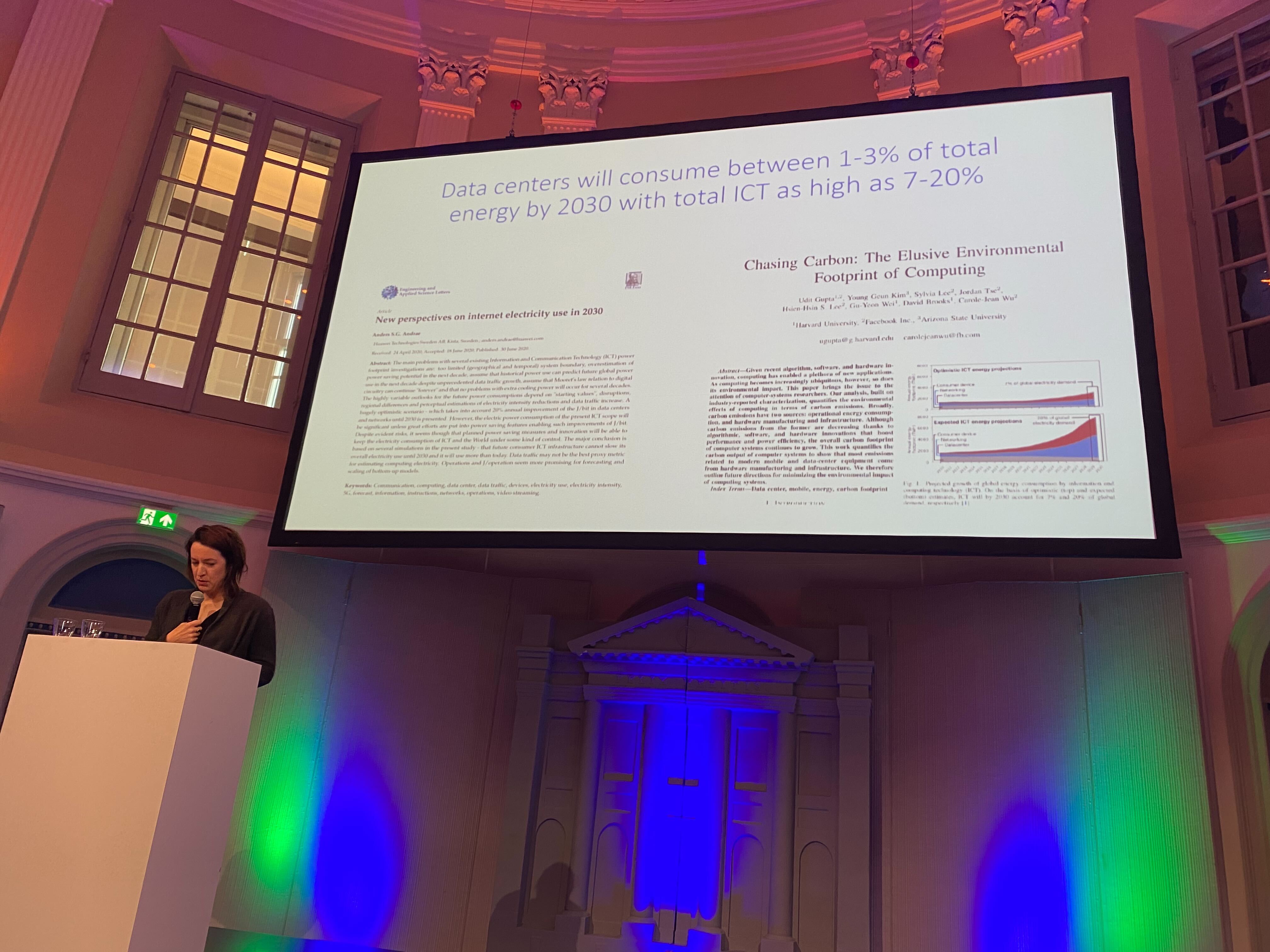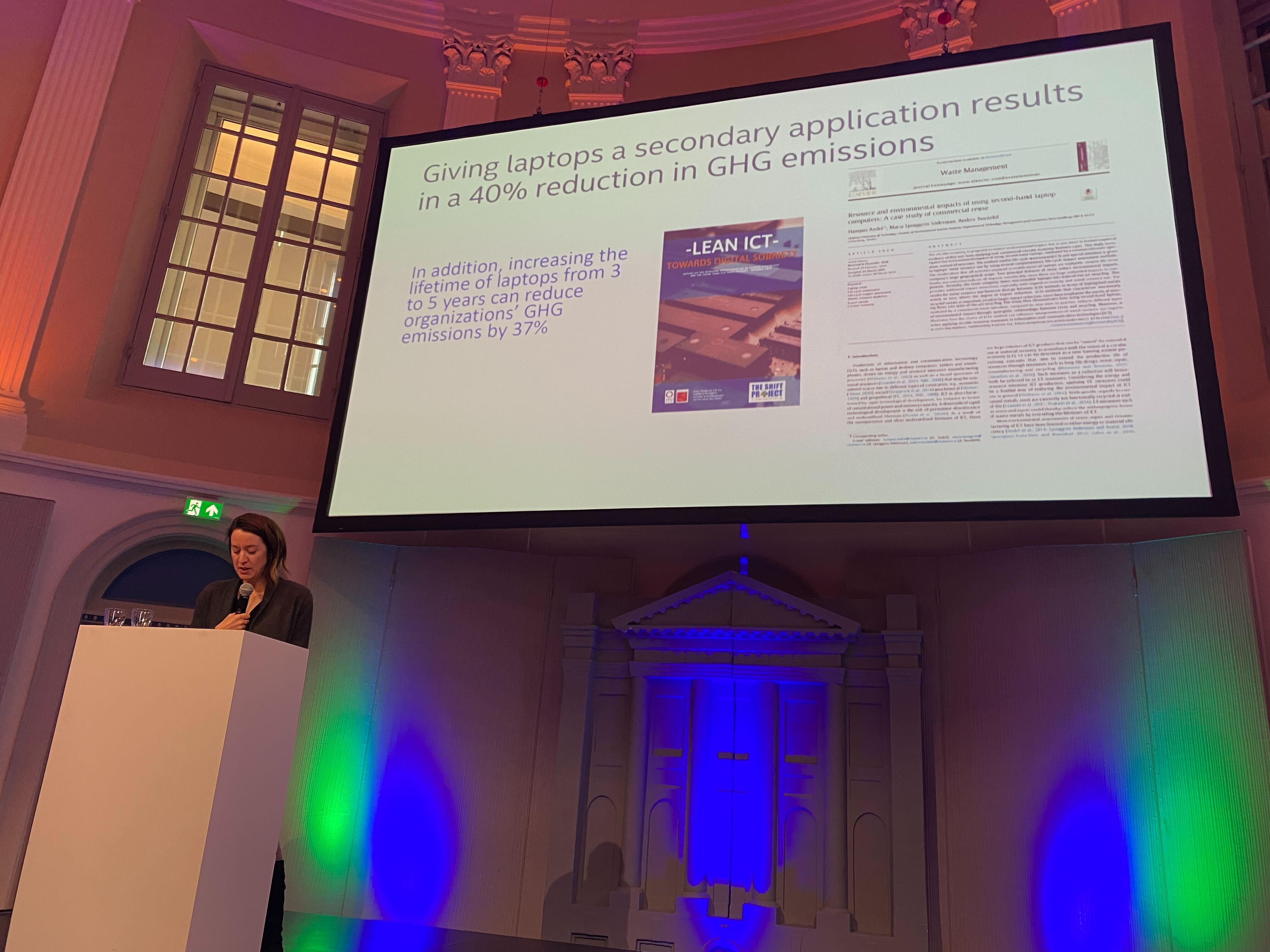Epic 2022 day 3 conference notes
This last day of EPIC is mainly the third and final keynote and the closing summary. Notes for Day 1 and Day 2.
Keynote: Melissa Gregg
Melissa Gregg is a senior principal engineer in user experience driving carbon reduction and green software strategy at Intel. With a PhD in gender and cultural studies, she is a widely cited author, theorist, and ethnographer, with over 60 peer-reviewed publications and books. Her research has appeared in Wired, Fast Company, Fortune, The New York Times, The Guardian, BBC and CBC, and has been translated into Russian, Mandarin and Korean.

What is the role of ethnography in the face of extinction? What principles should guide ethnographers in light of climate change and challenges that threaten business as usual?
Will map her path from UX Researcher to sustainability strategist. Highlight the hidden labour of code switching in formal and informal networks.
Will talk about research frameworks and methods needed to bring ecological thinking to bear on infrastructure.
She is the daughter of convicts and tricksters who moved to Tasmania. Father, grandfather and greatfather worked on sheep farming at a time when clearing land and exploitative and colonial practices were established. On mother side: Great grandfather jumped shipped and gave himself a new name.
Tracing her family history to highlight ecological debt and draw connection between extraction and colonial practices that were normalised in an earlier time and the work
Leith Sharp: to begin thinking ecologically you have to first situate yourself in a deep time.
We are in a time of extinction [BUT] the languge of business simply will not accept this reality. That’s why she is turning to story.
Tim Morton: Shift from “what do we need to do or know” and instead ask “how do we need to be”
Part 1: Who needs to be resilient in organizational life?
If one definition of resilience is the ability to adapt, then Leif teaches “conscious competence” on how to navigate different contexts
Two kinds of networks that capture how things get done in organizations:

A lot of benefits can come from bridging the two networks. When in adaptive netowrk, a lot of the work is de-risking in advance so that when the idea is presented to the heirarchcical network it is already ‘common sense’.

The ‘squiggle’: maps her path working on sustainability from 2019 to 2021 - when trying to quit, demand resources, change jobs, getting a management role, etc. there are highs and lows.

This squiggle charts her personal journey. The chart for sustainability work at Intel looks very different. The squiggle exercise makes visible the work ‘below the line’ and the amount of emotional labour involved.
This kind of work is heightened even more if you are a minority in an organization.
Who is doing the work of managing their own and others’ emotions in an organization. How fair is that work and is that even recognized by the management
Part 2: what does resilience look like in product?
Timothy Morton’s book: Being ecological.

Just dumping data on ourselves is actually inhibiiting in managing ecological knowledge.
The ‘anticiaptory fear’ of what’s coming with climate is also the problem. This is a classic PTSD resonse as well.
But in the tech industry, the data dump is how they work. They are ‘data-driven’ in its decision making. So talking about climate in tech looks like this:

It’s all about projections. But the sober langague of data and the temporality of projection allows those in charge to never actually be accountable.
In journalisitic framing, we get the language of extremes.
Or, we get the language of reporting and compliance - i.e. scope 1, scope 2, scope 3 emissions.
Or, we get the congratulatory framing - i.e. highlighting the big strides we’ve made. This is problematic when they become a destination for work (i.e. do the work that gets congratulatory reporting) and also an echo chamber.
(implication is that none of these framings are conducive to ‘being ecological’)
Case study: Extending the life and giving a second use to laptops to keep them in circulation for longer:

Includes: influencing supply chain, building more modular, easier-to-repair laptops, suppporting the refurbishment community
Considers the refurb movement as ‘positive parasitic’ behaviour. How to fight against “perceived to be planned” obsolesence? Free Geek and the Right to Repair movement.
Who needs the ‘right to repair’?
Also talks about green sofware movement.
In the history of engineering, this kind of ecological thinking has not been well-established.
In closing: Where does EPIC fit in this agile and heirarchical modes of influence? Should we continue to support the way EPIC works?
In the context of companies fixated on growth, how do you perform the role of irritant in that context? Who is doing that work of asking:”How is growth innately good and how do we put limits on growth given who is bearing the burden of that growth?”
Ethnography has always been about bearing witness to events that may seem foreign.